Are you navigating the intricate world of agricultural law compliance? Understanding the regulations can seem daunting, but it's crucial for your farm's success and sustainability. In this article, we'll break down the essential elements of compliance, ensuring you're well-equipped to meet the legal standards. Join us as we explore practical tips and insights that can help you thrive in your agricultural journey!

Accurate legal references
Agricultural law compliance involves adhering to various regulations that govern farming practices, environmental protection, agricultural subsidies, and food safety. The Federal Agricultural Improvement and Reform Act (FAIR Act) of 1996 outlines essential provisions regarding farm program payments and crop insurance. Local statutes, such as the California Code of Regulations, Title 3, encompass pesticide use and safety requirements important for protecting public health. The Environmental Protection Agency (EPA) sets standards under the Clean Water Act (CWA) to prevent water pollution from agricultural runoff. It's crucial for farmers to reference specific legal codes and relevant guidelines when drafting compliance documentation to ensure adherence to state and federal agricultural policies.
Clear compliance instructions
Agricultural law compliance involves strict adherence to regulations concerning food safety, environmental protection, and labor standards. Farmers must understand key legislation, such as the Federal Insecticide, Fungicide, and Rodenticide Act (FIFRA), which regulates pesticide use, or the Food Safety Modernization Act (FSMA), which emphasizes preventive measures against foodborne illnesses. Proper record-keeping is essential; detailed logs of pesticide applications (including product names, application rates, and dates) must be maintained for inspections. Compliance with labor regulations requires awareness of the Fair Labor Standards Act (FLSA), which dictates minimum wage and overtime pay for farmworkers across the United States. Additionally, understanding state-specific regulations, such as those outlined by California's Department of Pesticide Regulation, is necessary for ensuring local compliance. Regular training sessions for workers on safety practices and environmental stewardship can significantly mitigate legal risks.
Contact information for assistance
Agricultural law compliance significantly impacts farmers and agricultural businesses. Regulatory guidelines affect various aspects such as land use, water rights, pesticide application, and labor practices. The United States Department of Agriculture (USDA) provides resources and assistance for compliance matters. Additionally, local agricultural extension offices in counties, such as those in California or Texas, offer expert advice tailored to regional laws and regulations. Legal firm contacts specializing in agricultural law, such as those found in Washington D.C., can provide valuable insights into specific compliance challenges. Websites, such as those of the Environmental Protection Agency (EPA) and state agricultural departments, serve as key resources for updates and best practices in agricultural compliance.
Deadline for compliance actions
Farmers must adhere to agricultural law compliance deadlines, ensuring adherence to regulations established by the U.S. Department of Agriculture (USDA) and relevant state agencies. Specifically, deadlines for compliance actions vary by program; for example, the Conservation Reserve Program (CRP) often necessitates annual updates by July 1st each year, while the Federal Insecticide, Fungicide, and Rodenticide Act (FIFRA) mandates pesticide registration renewals by December 31st. Failure to meet these deadlines can result in penalties, including fines or the loss of federal funding. Local agricultural offices often provide resources, workshops, and reminders to assist farmers in fulfilling their compliance requirements on time. Understanding and tracking these dates is critical for sustainable farming practices and the ongoing eligibility for government programs.
Signatory authority and credentials
Agricultural law compliance necessitates a thorough understanding of regulatory frameworks governing farming practices, including land use, environmental impact, and labor laws. Signatory authority refers to individuals authorized to endorse compliance documents, typically including farm owners, managers, or legal representatives. Credentials for these authorities may encompass certifications, licenses (such as pesticide applicator licensure), and relevant educational qualifications in agricultural science or law. Proper documentation is vital, ensuring adherence to state-specific regulations, like the California Code of Regulations Title 3, which delineates standards for pesticide use. Accurate representation of signatory authority fosters accountability and compliance during inspections or audits by regulatory bodies, including the United States Department of Agriculture (USDA) and state agriculture departments.
Letter Template For Agricultural Law Compliance Samples
Letter template of agricultural law compliance requirements for businesses
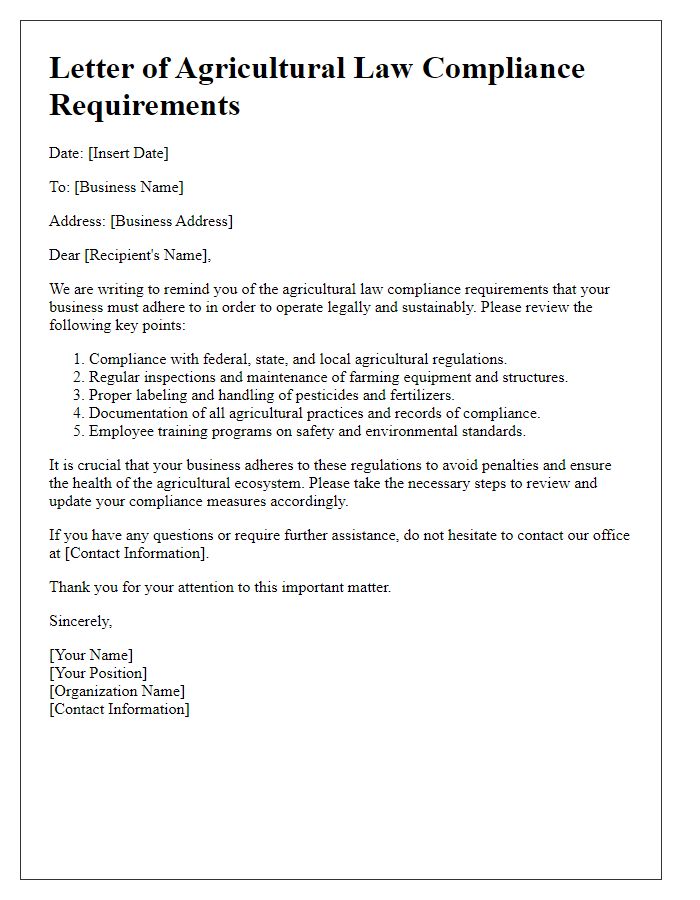
Letter template of agricultural law compliance notification for landowners
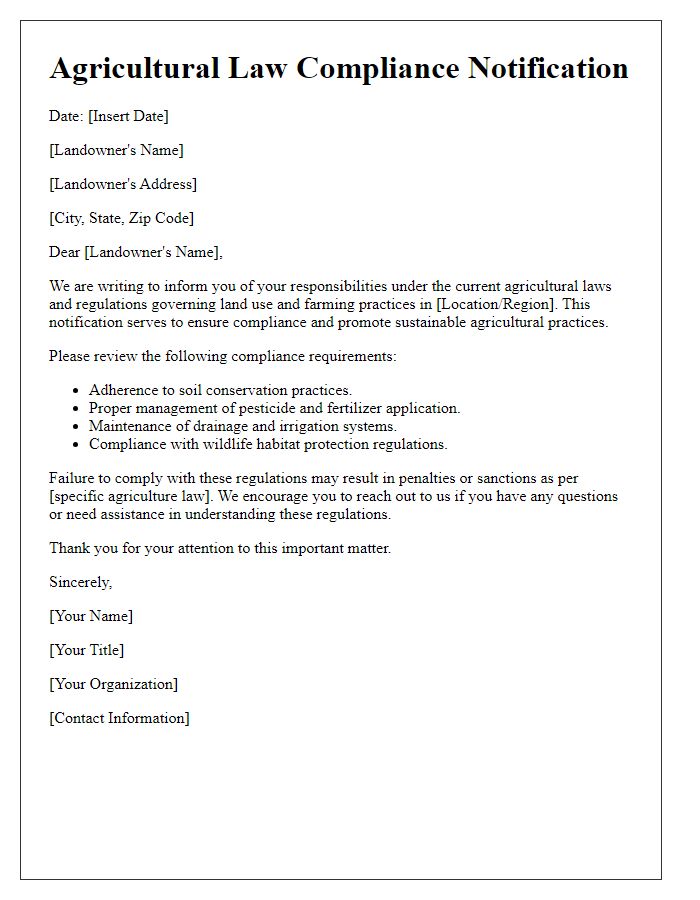
Letter template of agricultural law compliance certification application
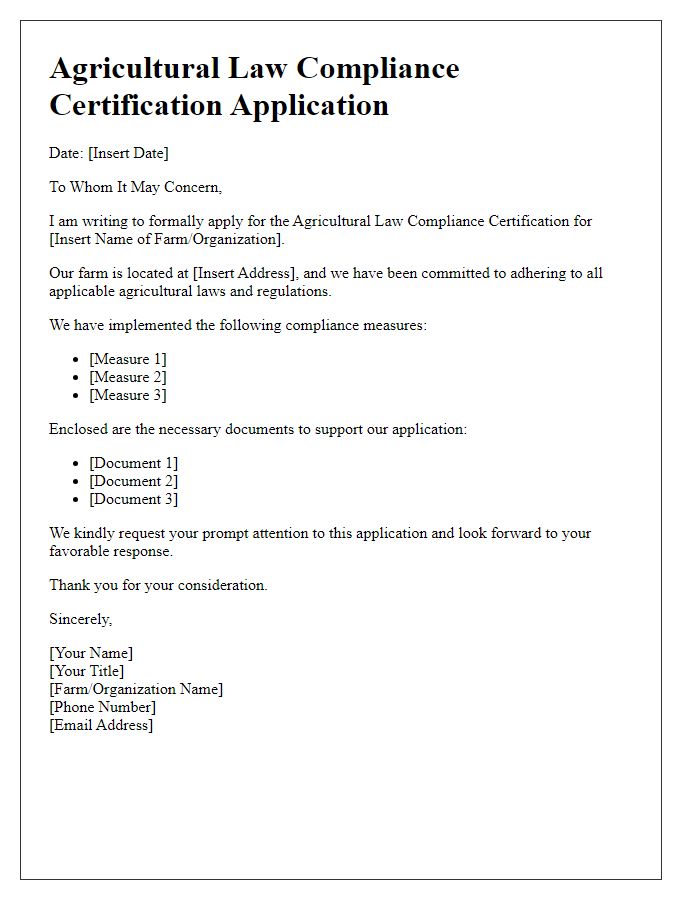

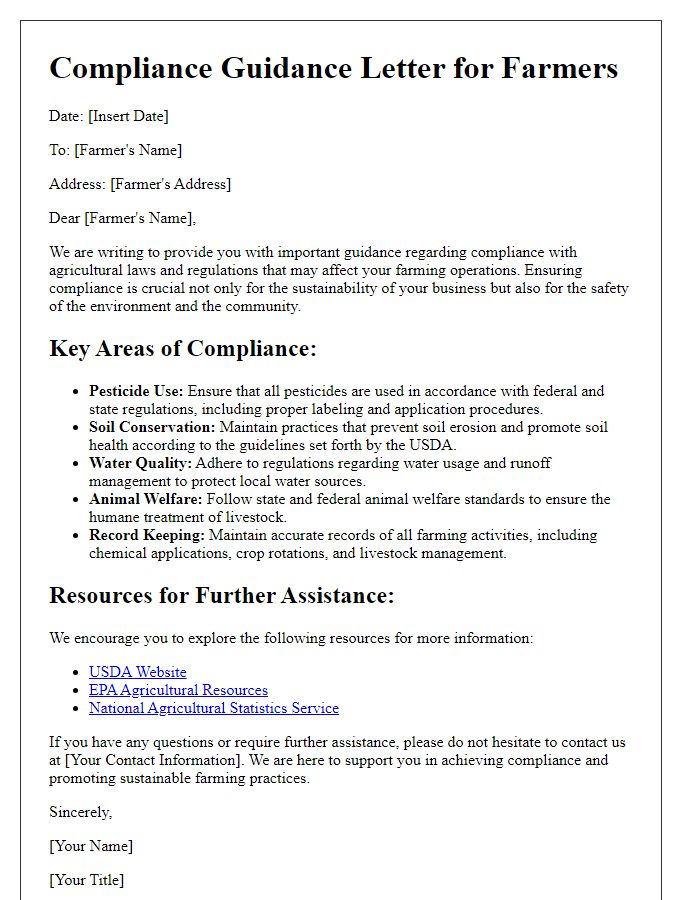
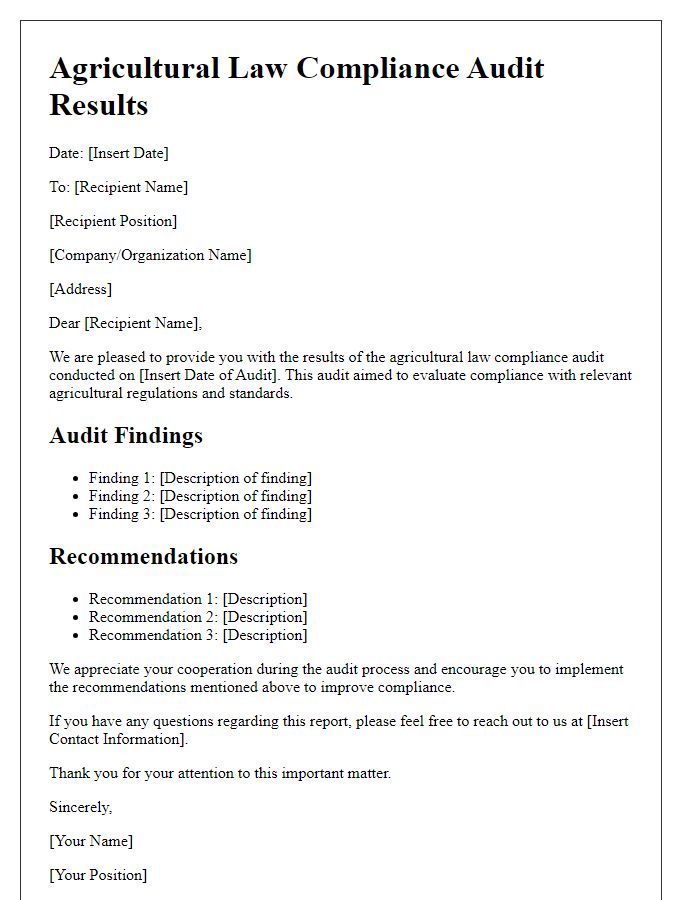
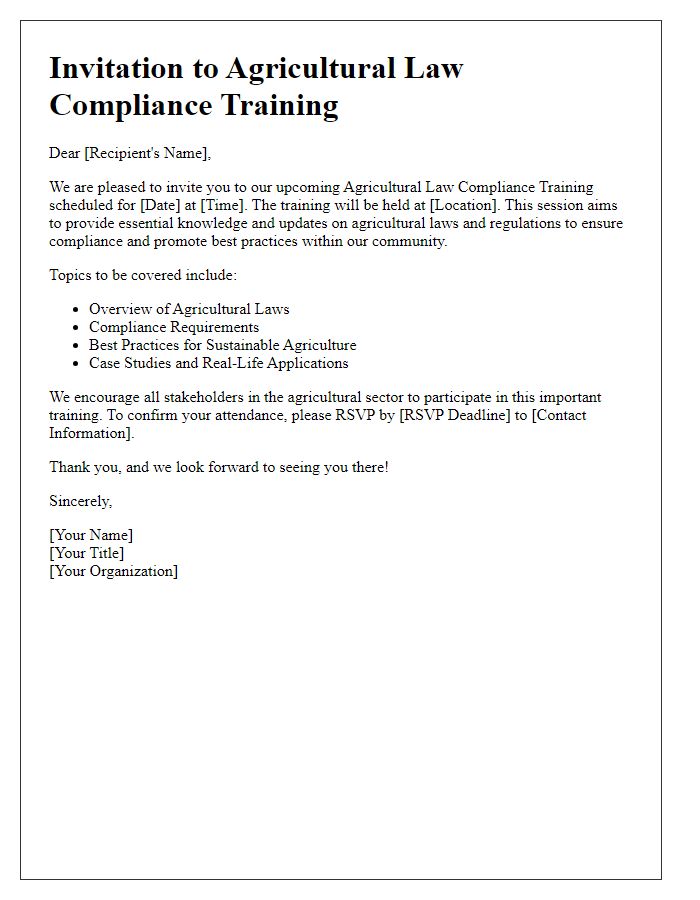
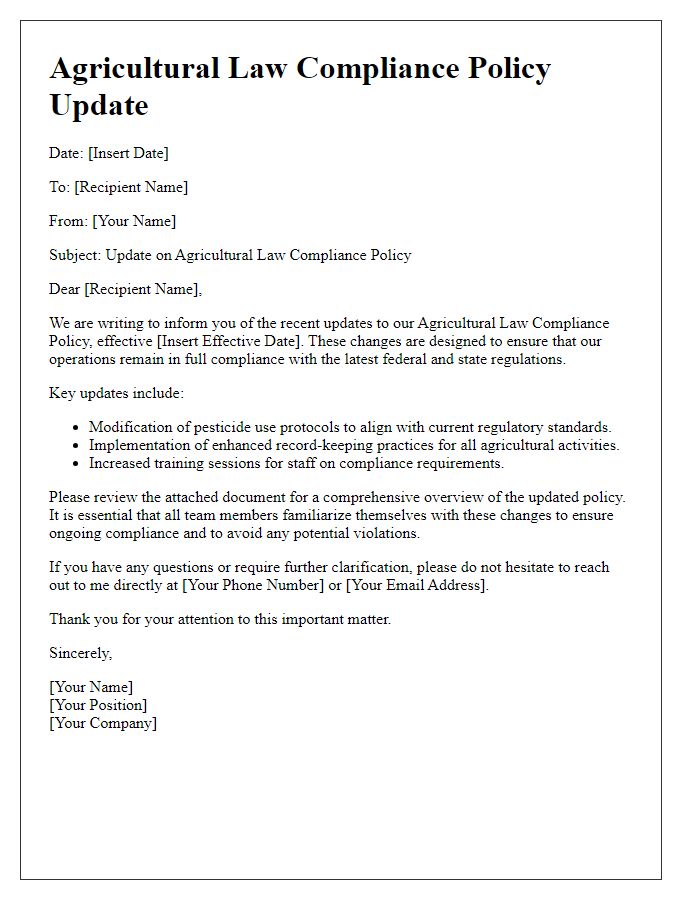
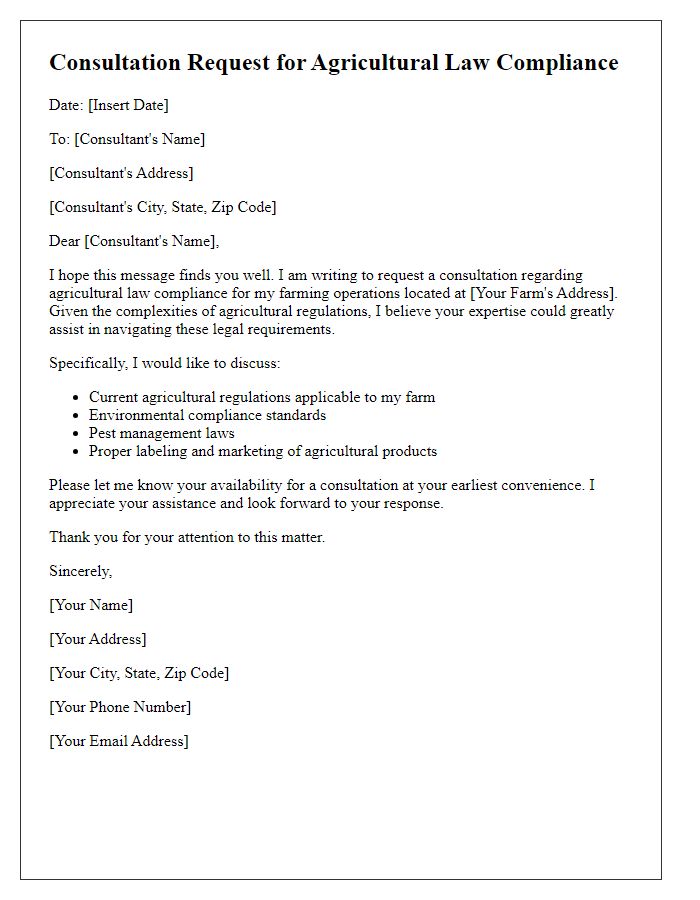
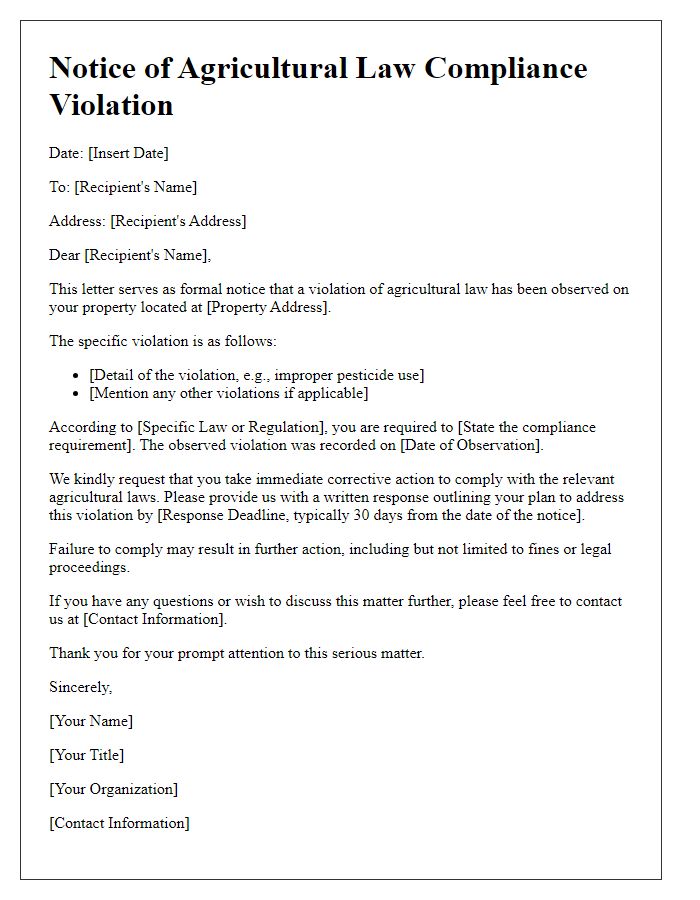
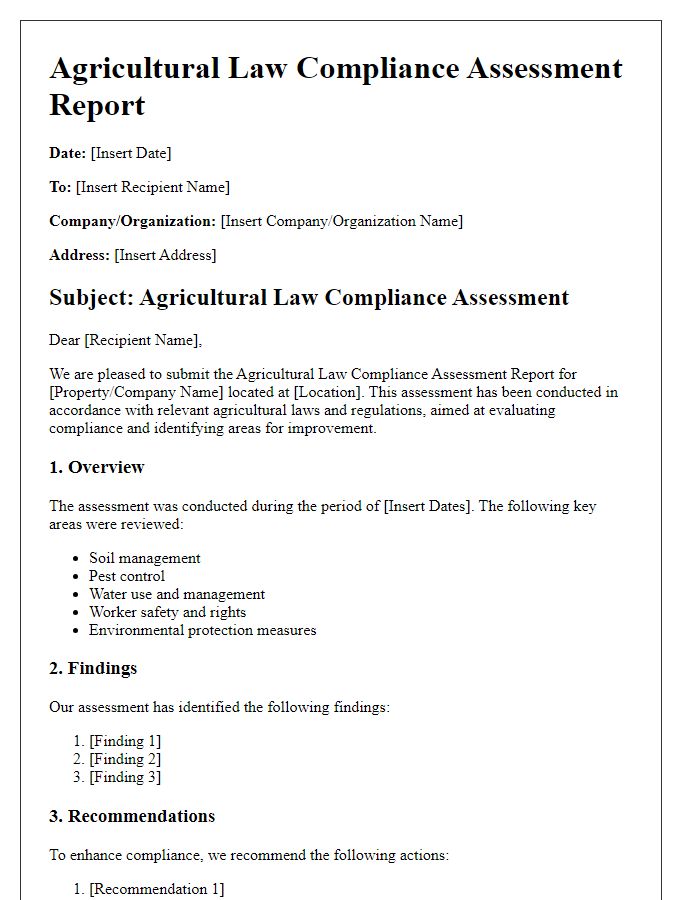


Comments